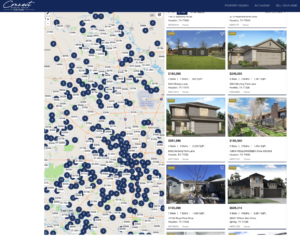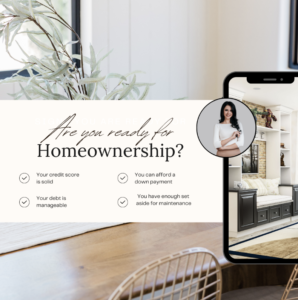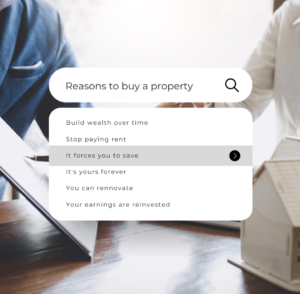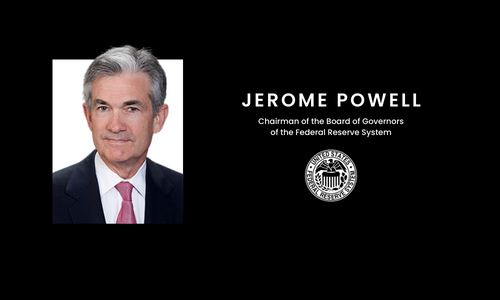Snagging new real estate leads can feel like you’re trying to catch lightning in a bottle—exciting, yet elusive. But as with anything in the world, with the right set of strategies, one can achieve almost any goal, including how to generate real estate leads. Understanding the landscape and adapting to the ever-evolving market trends can significantly demystify this process, making lead generation more of a science than a gamble. Moreover, leveraging data-driven insights and technology can streamline your efforts, ensuring every action is targeted and effective.
I was once where you might be now, knowing that generating leads is as crucial as it gets in real estate and any business. For more than 10 years, I have been consulting real estate agents and brokers on how to generate leads for their real estate business. However, it might seem difficult, time-consuming, and expensive. when you are executing the right strategies, the chances of generating more real estate leads are almost guaranteed. The strategies discussed below are proven; not only are they battle-tested, meaning successful real estate agents are executing them as you read this blog post, but organizations such as Pepperdine Graziadio Business School and Harvard Business Schools, two of the leading business schools in the world also teach the following strategies, therefore, the only thing left is for you to be aware of them and put them into action so you can achieve your monthly and annual sales goals.
How to generate real estate leads
This article will walk you through ten powerhouse strategies to amp up your listings—from networking with finesse and following up like a pro to digital marketing savvy and community engagement that turns heads. Buckle up; we’re diving deep into tactics that aren’t just talk—they deliver. How to generate real estate leads with consistency is a common question that I get from real estate agents and brokers. As a result, I have put together a comprehensive guide below that I also update monthly to ensure you can come back and read it to ensure you are not wasting your valuable time and resources.
How to Network for Real Estate Leads
Networking in real estate isn’t just about shaking hands and exchanging business cards. It’s a dance of building trust, creating value, and staying top-of-mind without stepping on toes. Imagine it as hosting your own party where every guest has the potential to connect you with your next big sale.

Embrace Local Events
Dig into community gatherings like a kid in a sandbox—find joy in local events and make authentic connections along the way. Attend town hall meetings, sponsor school sports teams or join that 5K charity run; these are golden opportunities not only to show support but also to chat with locals who might be looking to buy or sell their home soon.
Becoming a familiar face can turn casual conversations at these events into profitable partnerships down the road because let’s face it: people want to do business with those they know and like.
Leverage Professional Associations
You’ve got credentials, so flaunt them. Join professional associations such as the National Association of Realtors (NAR) where fellow agents often share leads outside their territory or expertise. By rubbing elbows with peers through conferences and seminars provided by NAR, you’re effectively expanding your network—and your chances of snagging hot leads—to professionals across different regions who recognize hustle when they see it.
This approach also helps keep you sharp on industry trends which clients love hearing about—it shows you’re serious about this gig.
Create Value Online & Offline
Social media is no longer optional—it’s mandatory for today’s realtor seeking new prospects. Engaging content is key here; whether sharing success stories from past clients or showcasing beautiful properties via virtual tours on platforms like Facebook can draw eyes—and eventually leads—to your page.
But don’t forget old-school charm too. Personal notes after open houses or checking in during holidays can add that personal touch which seals deals better than any high-tech gadgetry ever could.
Cultivate Referral Partnerships
The best compliment? A referral from another pro—a mortgage broker singing praises about how smooth transactions go whenever you’re involved is worth its weight in gold—or should we say commissions?
A strategy that includes nurturing relationships with attorneys, lenders, inspectors—all those players critical within real estate transactions—means more referrals heading straight towards ya’ when they encounter someone ready to enter the market.”
Remember, networking isn’t a quick fix—it’s about planting seeds that need time to grow. Stay consistent and genuine in your efforts. Keep offering help, nurturing those relationships, and before you know it, you’ll see your contacts flourish into valuable contracts.
Key Takeaway: Networking is the real estate hustle. Show up, make friends at local events, and join professional groups to expand your reach. Remember: referrals are gold—cultivate those partnerships. Stay genuine and consistent; it’s about long-term growth, not instant wins.
Best Practices for Real Estate Client Follow-Up
Imagine your client database as a garden. Each follow-up is like watering the plants, ensuring they grow into future opportunities. Here’s how you can make each drop count.
Nurture Relationships with Personalization
Your past clients are not just names in a spreadsheet; they’re living chapters of your career story. To keep the narrative going, tailor every interaction to their specific history and preferences. For example, if you know a former client loves gardening, sending them tips on home landscaping could show that you remember what matters to them personally.
This personal touch transforms routine check-ins into moments of connection—a strategy confirmed by research showing personalized emails have higher transaction rates. But don’t stop at email; mix it up with phone calls or handwritten notes for variety.
Leverage Technology without Losing Warmth
Clients appreciate efficiency but crave sincerity even more. Balance automation tools like CRMs with genuine communication—think automated birthday greetings followed by an impromptu call to catch up on life events. Tools should enhance relationships, not replace them.
Moreover, ensure any tech used adds value for your clients too; perhaps share insights from market trend reports or introduce user-friendly apps that help them track property values over time. Let technology amplify your expertise while keeping human-to-human connections at heart.
Create Value-Added Touchpoints Regularly
A monthly newsletter packed with actionable content—market analysis nobody else is talking about or interior design hacks—can turn a simple follow-up into something eagerly anticipated. Forbes suggests consistent added-value communication as key to retention in real estate, so focus on providing unique insight and resources regularly.
Real Estate Digital Marketing Tips
Digital real estate marketing isn’t just a trend; it’s the main event. Think of your online presence as prime real estate on the busy high street of the internet—without it, you’re basically invisible to passersby who could be potential leads.
Optimize Your Website for User Experience
Your website is your digital handshake, so make sure it’s firm and inviting. A cluttered or slow site can turn off potential clients faster than a rundown property. Keep navigation intuitive and content fresh with listings and insights that reflect your expertise in the market. For ideas on creating an engaging user experience, Smashing Magazine offers some great pointers.
Incorporating SEO best practices will also help people find you when they’re searching online for homes or agents in their area—a critical component since 44% of buyers look online first according to National Association of Realtors research.
Leverage Social Media Platforms
Social media is like a cocktail party where everyone’s talking about their dream home—the perfect place for you to chime in. Share stunning images of new listings on Instagram or provide valuable homeownership tips on Facebook to engage followers. Not convinced? Well, consider this: Sprout Social reports that after following a brand on social media, 91% visit its website or app.
Beyond posts and stories, don’t forget paid advertising options these platforms offer—they let you zero-in on demographics likely looking for properties just like yours.
Email Campaigns That Convert Leads
If social media is the cocktail party then email marketing is having coffee with each lead individually—it’s personal. An effective email campaign provides tailored content such as neighborhood guides or home maintenance tips directly into someone’s inbox without being spammy (because no one likes spam). Use tools like Mailchimp which not only streamline this process but also give insightful analytics so you can tweak campaigns accordingly.
Create Valuable Blog Content
A blog might seem old school next to TikTok dances but think again. It drives traffic back to your site by answering questions potential clients didn’t even know they had yet—and Google loves serving up helpful content in search results too. Just check out HubSpot’s stats showing businesses using blogs get 67% more leads than those who don’t.
Remember folks: The aim here isn’t just eyeballs glancing at your page—it’s keeping them glued there. So, we need to craft content that not only grabs attention but also holds it tight. Engaging material is key; give readers a reason to stay and explore what you’ve got to offer.
Key Takeaway: Make your website a digital handshake that’s firm and inviting—keep it clean, fast, and packed with fresh listings. Use SEO to show up where buyers are searching online.
Dive into the social media cocktail party; post eye-catching properties and helpful tips to draw folks in. Remember: A follow often leads to a site visit.
Emails are coffee chats with leads—personalize them without spamming. Tools like Mailchimp help you perfect this art form.
Blogs aren’t dead—they’re lead magnets. Answer questions clients haven’t asked yet, keep ’em coming back for more.
Community Involvement for Real Estate Agents
Imagine the local real estate agent not just as a salesperson, but as a neighborhood hero. That’s the power of community involvement for agents looking to grow their network and connect with homeowners.
The Social Fabric of Networking
Throwing your name into the hat at every networking event can feel like tossing pennies in a wishing well, hoping for that big catch. But when you weave yourself into the social fabric of your community through genuine participation—think charity events or school fundraisers—you’re building relationships on common ground. This shared experience creates bonds stronger than any business card exchange.
Dive into activities that light your fire; passion is contagious and people are drawn to it like moths to flame. Your energy will be remembered far longer than any pitch could ever last.
Becoming a Trustworthy Neighbor
Gaining trust is like growing an oak tree—it takes time and care but stands strong against all storms once rooted. By being actively involved in local initiatives, you show commitment beyond closing deals: You’re there during town hall meetings advocating for better parks or volunteering at animal shelters because this isn’t just where you work; it’s where you live too.
This hands-on approach not only builds trust but also keeps your ear close to potential shifts in homeowner sentiment—a boon when advising clients about market trends with first-hand knowledge they won’t find online.
The Ripple Effect of Doing Good
A simple act of kindness doesn’t end with one person—the ripple effect can touch dozens more within a community setting. For instance, sponsoring little league teams puts your name out there while supporting family values and youth development—key aspects many homebuyers look deeply into before laying roots down somewhere new.
These acts don’t scream ‘I’m selling houses.’ Instead, they whisper reassuringly, ‘I’m here helping build our future.’ And often times those whispers carry much further in getting leads than shouting from rooftops ever would.
By focusing on how these actions benefit both personal growth and professional success without becoming overly self-promotional or gimmicky ensures content remains engaging yet informative.
Remember: When folks need real estate help—they’ll turn to someone who hasn’t just sold homes around them but has been partaking alongside them shaping what ‘home’ means within their locality.
Key Takeaway: Boost your real estate lead game by becoming a neighborhood hero. Get involved in local events and causes to build genuine relationships. This not only shows you care beyond sales but also keeps you informed on the community pulse—making you the go-to agent when it’s time for someone to buy or sell.
How to Offer Top Real Estate Service
To stand out in the bustling real estate market, offering top-notch service isn’t just a nice-to-have; it’s your golden ticket. Let me spill the beans on what this means: providing detailed marketing strategies and giving clients insights into the market that they can’t find with a quick Google search.
Detailed Marketing Strategies
Gone are the days of slapping up a “For Sale” sign and calling it good. Today’s savvy sellers crave marketing magic. This starts with an ironclad plan tailored to their property like a bespoke suit. We’re talking high-quality photos, virtual tours that make buyers feel like they’ve stepped inside, and social media campaigns that turn heads faster than a puppy at brunch.
You want your listings not just seen but sought after? It takes smart targeting—think demographics, interests—and timing so precise you’d think we had crystal balls for breakfast. And don’t forget email campaigns; these aren’t your grandma’s chain letters but powerful tools designed to captivate potential buyers’ attention span longer than most folks watch TikToks.
Market Insights That Wow
The real MVPs know their local housing market better than their own backyards. They provide intel on everything from pricing trends to which neighborhoods are about to blow up—in popularity, I mean. A killer agent offers more than data; they serve up insights wrapped in storytelling charm because who doesn’t love feeling like they’re getting the inside scoop?
State metro area data reports? Check. Tailored advice based on whether inventory is tighter than jeans post-Thanksgiving dinner? You betcha. Clients need guidance through complex decisions—they’re looking for someone who knows if now’s really the time to sell or if waiting could net them enough for that dream vacation (hello Bali.). In essence, give them clarity amidst chaos.
Customized Client Approach
We all have our quirks—from pineapple pizza lovers (controversial) to those peculiar souls who enjoy running marathons (masochistic?). Likewise, every client has unique needs when selling their home. Some might be digital dynamos while others prefer face-to-face chats over coffee—or tea if caffeine makes them jittery.
A superb agent crafts experiences as customized as latte orders at Starbucks: maybe Mr. Tech Guru wants updates via Slack whereas Ms.-I-Hate-Technology prefers snail mail updates adorned with stamps featuring endangered species—it’s all about personal touch here people.
Remember, exceptional service is no accident—it’s deliberate actions taken every day toward making each client feel like an Oscar winner walking down Hollywood Boulevard: special and ready to shine. Our commitment to this mindset ensures that every interaction is not just a transaction but a standout moment in their day.
Key Takeaway: Want to shine in real estate? Offer killer marketing strategies and insider market insights. Think high-quality photos, virtual tours, and targeted social media campaigns. Know the local scene better than your backyard and tailor advice like a custom latte—your clients will feel like Oscar winners.
Using Direct Mail for Real Estate Listings
In the digital age, you might think direct mail has gone the way of the dodo. Think again. It’s still a powerhouse for real estate listings, with that personal touch an email just can’t match.
Now, imagine your potential seller’s kitchen table. Bills, kids’ drawings – and bam. Your eye-catching postcard lands smack in their daily life. They’re sipping coffee, flipping through mail; they see your face next to a ‘Just Sold’ house nearby. That’s how you plant seeds in fertile soil.
The Art of Crafting Killer Mailers
We’re not talking about those “I buy houses” yellow letters here. You want something that screams professionalism yet whispers familiarity—a balancing act worthy of Cirque du Soleil.
Your direct mail piece should be more than just pretty pictures and stats—it needs to resonate on a personal level too. Here are some tips:
- Know Thy Neighborhood: Customize each campaign like it’s haute couture—tailor-made for specific areas or demographics.
- Showcase Success Stories: A picture is worth a thousand words but add numbers showing how much above asking price you sold a home? Priceless.
- Craft Compelling Content: Stir emotions with headlines that connect because homeownership isn’t just business; it’s deeply personal.
You don’t need to reinvent the wheel either; there are plenty of resources available highlighting effective real estate marketing strategies.
Slicing Through The Clutter With Personalization
A mass-produced flyer goes straight into recycling—but what if they saw their name? Or better yet—an issue solved?
- Dive Deep Into Data: Use data analytics tools designed specifically for realtors to uncover insights about your audience so every message hits close to home (pun intended).
- Tangible Takeaways: Giving them something handy like fridge magnets means whenever hunger strikes—they’re reminded who’s got local properties on lock down.
- Add A Human Touch: Harness handwritten fonts or even consider handwriting notes yourself if time allows—that human connection makes all difference between junk mail and jackpot leads.
To really get savvy with targeting options, check out the deep dive from Inman. They’ve got a wealth of info that’ll give you an edge.
Key Takeaway: Think direct mail’s dead for real estate? Nope, it still nails the personal touch. Picture this: your postcard pops out amid bills on a kitchen table, showing off nearby homes you’ve sold. It’s all about hitting that sweet spot between professional and personal.
Tips to dominate with mailers? Know your area like the back of your hand, flaunt those success stories big time, and write content that tugs at heartstrings. And don’t just blast generic flyers—personalize. Use names, address their needs directly or even go old-school with handwritten notes for a killer impact.
Online Advertising Strategies for Realtors
Gone are the days when a simple listing in the newspaper would do the trick. Today’s real estate market demands savvy online advertising strategies that zero in on your target audience with laser precision.
Understanding Your Audience
Dig into who you’re trying to reach before spending a dime. Demographics like age, income level, and location can make or break your campaign effectiveness. Tools such as Google’s Keyword Planner let you peek into what potential homebuyers are searching for, giving you an edge right out of the gate.
The beauty here is customization; crafting messages that speak directly to someone’s needs is more than smart—it’s essential. Think about it: A retiree looking to downsize isn’t browsing TikTok for listings, just like first-time buyers aren’t thumbing through luxury magazines.
Leveraging Social Media Platforms
Social media isn’t just where we go to check up on old friends anymore; it’s also where many folks start their search for new homes. With platforms offering ad services tailored by interests and behaviors—like Facebook Ads—you can ensure your properties pop up in feeds of those most likely to give them a thumbs-up.
Facebook Ads Manager, specifically, provides robust analytics so you can track how well your ads perform. This means no guessing games—just clear metrics showing whether those virtual tours and property photos are hitting home runs or falling flat.
Paying Per Click with Google Ads
While social media reigns supreme in some arenas, don’t overlook tried-and-true methods like pay-per-click (PPC) advertising through Google Ads. Here’s why: people actively searching “homes near me” show they’re ready to move…literally.
Your ad dollars work smarter—not harder—as PPC campaigns only cost pennies when interested parties click through your ads. And since this platform allows targeting specific keywords relevant to real estate sales within particular ZIP codes? You’ll be seen by locals already eyeing their next move—which could be into one of your listings.
Email Campaigns That Convert Leads Into Sales
Combining the tried-and-true reliability of email with a dash of personalization isn’t just smart; it’s like giving your marketing strategy a supercharge. Think about how you feel when someone remembers your name or sends something tailored just for you – that’s the kind of warm, fuzzy feeling we’re aiming to replicate with every cold lead. And let me tell you, it works wonders.
Key Takeaway: Dive into your audience’s demographics before spending on ads to craft messages that hit home. Use social media and Google Ads for precision targeting, ensuring your properties show up where potential buyers are looking. Personalize emails to convert leads into sales—it feels like a marketing supercharge.
Leveraging MLS and Real Estate Platforms
Think of the Multiple Listing Service (MLS) as a grand mixer where homes meet their potential new owners. It’s not just any old party though; it’s exclusive, members-only, and if you’re a real estate agent looking to connect with sellers, this is one bash you can’t afford to miss.
But here’s the twist: being on MLS isn’t about showing up in your best suit and waiting for leads to waltz over. No sir. You’ve got to jazz up your listings with eye-catching photos and compelling descriptions that make home buyers want to dance. A well-dressed listing is like a melody that lingers—making sure potential clients remember you when they’re ready to sell their own place.

Maintain Updated Listings
To stay relevant on these platforms, keep your information fresh as morning dew. An outdated listing sticks out like last season’s fashions at New York Fashion Week—not a good look. Make sure every property detail is accurate because trust me, nobody likes surprises unless it involves cake or money.
The key lies in details so fine-tuned that even Sherlock Holmes couldn’t find fault. This means double-checking square footage numbers and making updates whenever there’s something new—a renovated kitchen perhaps? Snap some pics post-reno because everyone loves before-and-after shots more than popcorn at the movies.
Create Engaging Profiles
Your profile picture might not be worth a thousand words but certainly enough to start conversations rolling. Choose an image that says ‘trustworthy’ yet ‘approachable,’ sort of like how puppies are instant friend magnets—but I digress.
Beyond pictures, fill out those bios till they brim with personality—and by personality I mean qualifications peppered with personal tidbits for flavor. Maybe mention how much you love transforming houses into homes or crafting deals smoother than peanut butter?
Connecting With Potential Sellers
You see them lurking around open houses—the tire kickers who could become tomorrow’s sellers today if only given the right nudge toward destiny… which happens to be listing their house through YOU.
So why wait until fate plays its hand? Use tools available on sites like Zillow, engaging folks who show even an ounce of interest in selling down the line.
By putting these strategies to work on MLS and similar platforms, you can grab the attention of sellers and stand out in a crowded market. It’s all about showcasing your listings in the best light to spark interest and get results.
Key Takeaway: Hit up MLS like the hottest party in town, but remember it’s all about making your listings pop with stunning photos and killer descriptions. Keep info fresh to avoid being yesterday’s news, and let your profile pic kickstart chats just like a cute puppy grabs attention.
Door-to-Door Real Estate Marketing

The Personal Touch in an Impersonal World
In our digital age, face-to-face interaction carries more weight than ever. It breaks through the noise of countless online ads and impersonal emails that bombard homeowners daily. When you’re right there on their doorstep, it shows initiative and dedication—qualities every homeowner appreciates when entrusting someone with their biggest asset.
Remember though, this approach has its nuances. You’ve got to be as familiar with local customs as a fish is with water. The National Association of Realtors’ tips can help sharpen your door-knocking skills while maintaining respect for privacy—a crucial balance.
Tailoring Your Approach: Every Door Has Its Key
You wouldn’t use the same key for every lock, so why use the same pitch at every door? Tailor your message based on neighborhood research—knowing if an area has lots of first-time homebuyers or downsizing retirees helps craft conversations that resonate.
Dive into market data before you step out; tools like Zillow Research offer insights into demographic trends that let you tweak your script from factual (market stats) to familial (school districts), depending on who answers the door.
Making Each Interaction Count: Beyond The Hello
A successful doorstep conversation goes beyond pleasantries—it plants seeds for future growth. Maybe they’re not looking to sell now but knowing someone thoughtful enough to drop by might just nudge them towards picking up the phone when they are ready down the line.
Create memorable leave-behind materials—not just business cards—but something valuable like home maintenance checklists or community event calendars from sources such as HouseLogic. These items stay long after you’ve gone, keeping your name within arm’s reach should they decide it’s time for a change.
With careful consideration given to each personal visit along tree-lined streets or bustling city blocks alike, tapping those knockers could turn into ringing endorsements of what makes you stand out in today’s competitive real estate landscape.
Key Takeaway: Hit the pavement with a smile and shake hands to make real connections. Remember, it’s not just about knocking on doors but opening them to new possibilities.
Stand out in a digital world by mastering face-to-face interactions; respect privacy and tailor your approach for every door you knock on.
Create lasting impressions with valuable leave-behinds that keep your name close at hand for when homeowners are ready to make their move.
Hosting Real Estate Selling Workshops
You know the deal: Knowledge is power. But in real estate, it’s also a magnet for leads. Picture this—your very own workshop, buzzing with potential sellers soaking up your insights on the selling process. That’s right; we’re talking about hosting workshops that turn attendees into clients.
Why Workshops Work Wonders
Educational seminars aren’t just about flaunting what you know—they’re about sharing value and building trust. When people learn from you, they see you as an authority figure who can guide them through one of their biggest life decisions: selling their home. And because folks love freebies, offering no-cost workshops gives them a taste of your expertise without opening their wallets.
This approach not only puts a face to your name but also shows off your dedication to empowering homeowners—which can make all the difference when they decide who’ll sell their casa.
The Nitty-Gritty of Workshop Magic
Let’s break down how to nail these workshops:
- Pick Your Poison: Hot topics like market trends or staging tips draw crowds—choose subjects that resonate and educate.
- Venue Vibes: Whether it’s a cozy community center or online via webinar platforms like Zoom, find a space where comfort meets capacity.
- Promote Like There’s No Tomorrow: Blast social media, tap into email lists and even old-school flyers—a packed room means more potential leads.
Dive deep during these sessions. Give examples from past sales successes (or even those learning moments we don’t brag about). Share stories that showcase how well-equipped you are at navigating tricky negotiations or tight timelines—it’ll give participants confidence in choosing you over Joe Schmo Realtor next door.
Tailoring Content for Maximum Impact
All sellers have unique needs—that’s why customizing content hits home runs every time. For instance,
- If local property values are skyrocketing, explain why now might be prime time to sell.
- If downsizing is trending among baby boomers in your area, craft seminars geared towards simplifying big moves.
- Say there’s new legislation affecting homeownership? Break down what that means for prospective sellers in plain English so everyone gets it.
Stick to a sleek, straightforward slide design. Bombarding folks with details can make you lose their attention quicker than sellers scare off buyers with a steep price tag on a home.
Key Takeaway: Hosting real estate workshops is a smart move; they’re lead magnets that build trust and position you as an expert. Choose hot topics, promote aggressively, and personalize your content to show potential sellers why you’re the go-to agent.
Conclusion
So, you’ve explored how to generate real estate leads. Remember, it’s about networking smartly and following up without being pushy.
Lean into digital marketing; let your brand shine online. Get involved locally—this roots your reputation in trust.
Dazzle with service that goes above and beyond. Use direct mail creatively and target ads wisely to keep costs down but impact high.
Showcase on MLS for visibility, knock on doors thoughtfully, and teach what you know through workshops. These aren’t just tips—they’re game changers when used right.
You’ve got this! Now go out there and turn these strategies into solid leads for the win!









